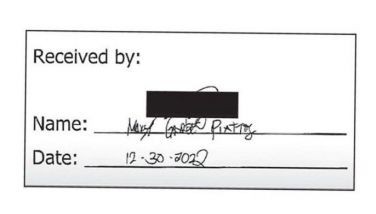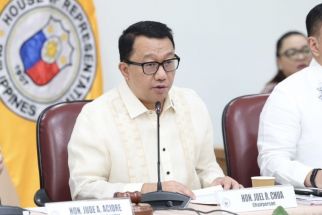Palace mulls review of oil deregulation law
MANILA, Philippines - Admitting government’s limited powers to address problems faced by consumers with the country’s oil industry, Malacañang warned it might move to review the oil deregulation law.
With pump prices going up again and the supply of liquefied petroleum gas (LPG) still an issue among consumers, Press Secretary Cerge Remonde said it is “really about time that we revisit the oil deregulation law.”
Remonde cited the price hike oil companies implemented yesterday as their “gift” to consumers on Valentine’s Day.
Petron Corp., Pilipinas Shell Petroleum Corp. and Total Philippines Inc. yesterday implemented an across-the-board price increase of their oil products.
The three oil companies increased the price of diesel products by 25 centavos per liter, gasoline by 50 centavos, and E-10 blended gasoline by 75 centavos.
The oil firms said the price increases reflected the cost of the fuel blend mandated under the new biofuels law.
Remonde said the government is using every bit of persuasive power to get the oil companies to lessen the impact on consumers.
“Because until the deregulation law is repealed, the government is left with only persuasive powers when it comes to the price of oil,” Remonde said.
“Maybe government can apply more pressure in terms of looking into their books, etc. But we leave that matter to Energy Secretary (Angelo) Reyes,” he said.
An even bigger problem for consumers than the increase in fuel prices was the shortage in the supply of LPG in the market.
Reyes had repeatedly asserted a sufficient supply of LPG in the market, but consumers continue to complain about their inability to buy this basic need.
Need for legislation
Reyes conceded the need for legislation to regulate and penalize LPG hoarding.
Proposals were filed during the previous Congress seeking to revive the licensing function of the Department of Energy (DOE) scrapped by Republic Act 8479 or the Oil Deregulation Law.
By restoring the function to grant license to operate to LPG suppliers, Reyes said the DOE could ensure that only compliant LPG industry players can engage in the business.
Under the current regulatory framework, LPG players only submit a notice prior to engagement and other requirements.
The DOE can only exercise visitorial powers to inspect and monitor compliance of refineries, depots and other LPG facilities.
Sen. Manuel Villar Jr. and other lawmakers also saw the need to review the provision of the Oil Deregulation Law, particularly on regulating the sale and distribution of LPG.
Villar said there is a need to put in place mechanisms and policies to ensure effective regulation of LPG sale and distribution to protect the consumers.
“This is not the first time that we encounter shortage in supply and fluctuations in prices of LPG. In many instances, the shortage and price hikes are not even market-driven but artificial,” he said.
Villar stressed the need to review LPG market operations and implement policies to make it more regulated for the protection of consumers.
Stricter policies
He said stricter policies should be implemented to stop abusive trade practices in LPG market.
“A better regulated LPG market would also level the playing field and allow small industry players to compete head-on with the big multinationals,” Villar said.
Villar said over 90 percent of the domestic market for LPG has been controlled by a handful of companies, leaving the small players, which have been clamoring for industry regulation, with only a small percentage of the market.
“If competition is healthy, market-dictated and not monopolized by a certain group or cartel, then there is no room for abusive and prohibitive pricing. The buying public will not be forced to purchase excessively priced LPG tanks because of artificial shortage,” he said.
Villar recommended the adoption of mechanisms that would ensure the accuracy of the content of LPG tanks.
Villar earlier filed a bill requiring LPG retailers to have a weighing scale or equipment in their stores or establishments and prescribing a uniform or standard design for the outlet and regulator of the LPG tanks.
“With a uniform design for the outlet or regulator of the LPG tanks, consumers will have easier access to any brand of LPG tanks, especially in times of shortage in the supply of certain brands of LPG. Steady supply of basic consumer goods such as LPG should be prioritized,” he said.
During a recent hearing by the House committee on energy, the LPG Industry Association, whose members include the Big 3 oil players Shell, Caltex and Petron, admitted that they make “supply arrangements” among themselves to ensure the steady and adequate supply of LPG.
Some lawmakers, however, said the so-called supply arrangement is a form of cartelization.
Remonde, for his part, said this form of arrangement should be looked into by the DOE, which should also monitor every phase of the supply chain to address the LPG supply problem.
“It is best that Secretary Reyes, with the help of the Department of Trade and Industry, look into this. They say that there is sufficient supply but this is not reaching the consumers,” Remonde said. – With Donnabelle Gatdula, Jose Rodel Clapano
- Latest
- Trending





























